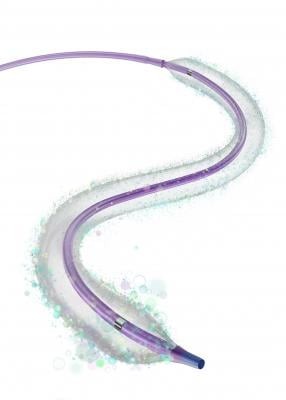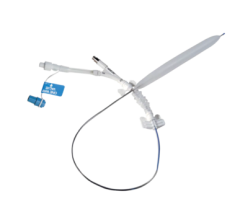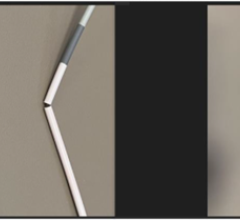
June 15, 2018 — Medtronic plc has received U.S. Food and Drug Administration (FDA) approval for 200mm and 250mm lengths of the In.Pact Admiral Drug-Coated Balloon (DCB) to treat long superficial femoral artery (SFA) lesions in patients with peripheral artery disease (PAD).
"As SFA disease progresses, we tend to see patients present with longer, more complex lesions. As a result, these lesions become incredibly challenging to treat and often require interventions with multiple technologies to effectively treat the entire segment,” said Gary Ansel, M.D.,system medical director for vascular services at OhioHealth Riverside Methodist Hospital in Columbus, Ohio. “The approval of the In.Pact Admiral 200mm and 250mm balloons provides physicians with a solution to treat these long, complex lesions with fewer devices, potentially leading to shorter procedure times and reduced procedural cost.”
Complex lesions, including those over 150mm, are commonly encountered in clinical practice and remain a significant treatment challenge for physicians. In April of this year, In.Pact Admiral received approval to treat SFA lesions up to 360mm in length. Approval was based on clinical data from the complex lesion imaging cohorts of the In.Pact Global Study, including long lesion, in-stent restenosis and chronic total occlusion (CTO) groups with lesion lengths >180mm. Across these groups, a total of 227 subjects with mean lesion lengths of 28.7 ± 7.1 cm were analyzed. Data showed a one-year patency rate of 89.1 percent by Kaplan Meier estimate at day 360, and a clinically-driven target revascularization (CD-TLR) rate of 7.1 percent.
The In.Pact Admiral drug-coated balloon was the first DCB to receive approval by the FDA for the treatment of in-stent restenosis and lesions up to 360mm in length. The DCB's primary mode of action is physical dilatation of the vessel lumen by percutaneous transluminal angioplasty (PTA), followed by the delivery of paclitaxel. The device is intended to prevent artery narrowing by minimizing scar tissue formation.
In.Pact Admiral received the CE Mark in March 2009 to treat PAD and was approved by the FDA in December 2014 to treat superficial femoral and popliteal arteries. It has been studied in more than 20 individual clinical trials demonstrating durable safety and clinical benefits.
For more information: www.medtronic.com


 June 13, 2024
June 13, 2024 









